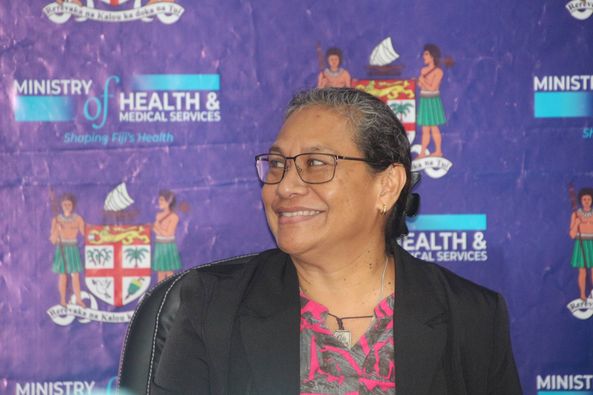It is good to know that the Ministry of Health is revising its approach to health awareness campaigns, particularly concerning sensitive issues like HIV.
Acting chief medical advisor, Dr Luisa Cikamatana revealed this during a panel discussion at the Fiji Institute of Medical Laboratory Services Annual Convention at the Shangri-La Hotel at the weekend.
That also comes in the wake of revelations that about 89 per cent of all HIV positive tests recorded from January to June this year comprised members of the iTaukei community. In addition, more men were diagnosed with HIV.
Now this was shared by Ministry of Health head of family health, Dr Rachel Devi at the same convention.
She also reiterated that HIV did not discriminate based on race, religion, or age.
Dr Cikamatana said there was a need for clear and educational messaging.
“It has to be put in such a way that they understand and it’s educating them,” she said.
She emphasised the importance of framing health information positively to encourage decision-making.
“Instead of having that fear because you have it and then you’re always in fear, it’s important to help them answer, ‘OK, if I have it, what can I do about it?’”
“It’s meant to empower them to do the right thing.”
What we are seeing now is a rise in the number of people infected with HIV.
It is a concern and will no doubt force many of us to rethink what we need to do to protect ourselves from being infected.
Unfortunately, this isn’t shared by everyone which is why we have our numbers on the rise.
The key here is awareness, and how we get our messaging right for the masses.
It should create a level of awareness that is critical in managing HIV, and subsequently reducing our numbers or stabilising that.
This is why this direction that the ministry is taking in terms of its awareness campaigns is actually healthy.
It makes sense that we should raise the level of how we deal with HIV given the numbers now.
We also reflect on these numbers, and questions that are connected to them.
Dr Devi spoke about the importance of analysing the available statistics in the context of our overall demographic make-up.
In saying that, we agree that there is a need for a change in mindset. And we endorse the need for a change in the way we manage and deliver awareness campaigns.
We reflect on the connection between heavy syringe use for hard drugs like methamphetamine, shared needles, and HIV for instance.
And we also reflect on the need for us to be empowered to make sensible decisions and choices in our lives.
Awareness campaigns must cultivate a deeper understanding of HIV, hopefully stabilising or ideally reducing the number of infections. The ministry’s new direction for these campaigns is thus, both timely and necessary.
Emphasis on positive messaging can help to dismantle barriers, encouraging open conversations about sexual health and HIV prevention. With the stats before us, a shift in how we address HIV is critically important.



